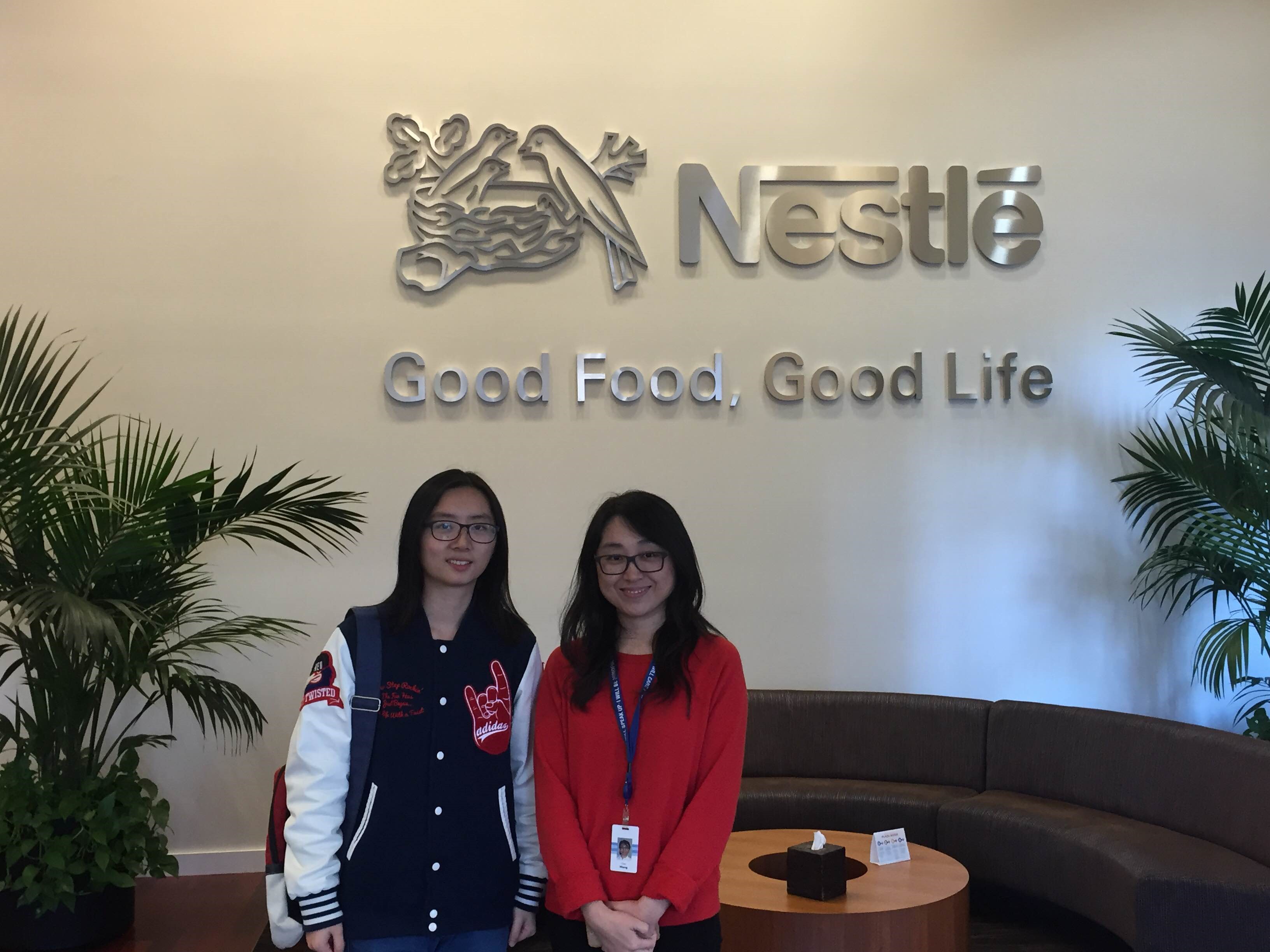News | METRANS Mentor Program is Accepting Applications for Spring 2016
Stop the VideoNews

METRANS UTC
METRANS Mentor Program is Accepting Applications for Spring 2016
Thursday, January 21, 2016
by By Shichun Hu, MSISE 2017

USC Student Shichun Hu with her Mentor Chen Wang, Supply Chain Operations Research Analyst at Nestle USA
We are pleased to announce that METRANS is now accepting applications for our spring mentor program! The METRANS mentor program offers students the opportunity to gain practical perspective on the transportation profession and receive advice and counsel from a transportation professional. Mentors are matched with mentees based on common career and academic interests and provide practical career guidance, often missing in students’ formal education. While the mentor/mentee relationship is designed to last through the the academic year, many of the students and mentors remain in contact throughout the student’s studies, and often following graduation.
This past fall semester, the center matched 14 mentees, 4 from the Viterbi School of Engineering and 10 from the Sol Price School of Public Policy, with mentors in a variety of transportation related fields such as engineering, education, and government. Mentees consistently reported high levels of satisfaction and found the program valuable.
Those with interest in becoming involved with METRANS Mentor program as either a mentee or mentor are encouraged to contact METRANS Assistant Director Victoria Deguzman at VictoriV.usc.edu or METRANS Student Mentor Program Coordinator, Shichun Hu at [email protected].
Shichun Hu
Author Shichun Hu is a student associate at METRANS Transportation Center. She is a first year student in the Master of Industrial and Systems Engineering Program in the Viterbi School of Engineering, USC. Her interests are urban logistics, supply chain and industrial engineering. After graduation she hopes to pursue a career in transportation, specifically to improve the supply chain to enhance efficiency and access to goods.
News Archive
- December (1)
- November (6)
- October (4)
- September (2)
- August (3)
- July (4)
- June (3)
- May (7)
- April (8)
- March (11)
- February (8)
- January (7)
- December (7)
- November (8)
- October (11)
- September (11)
- August (4)
- July (10)
- June (9)
- May (2)
- April (12)
- March (8)
- February (7)
- January (11)
- December (11)
- November (5)
- October (16)
- September (7)
- August (5)
- July (13)
- June (5)
- May (5)
- April (7)
- March (5)
- February (3)
- January (4)
- December (4)
- November (5)
- October (5)
- September (4)
- August (4)
- July (6)
- June (8)
- May (4)
- April (6)
- March (6)
- February (7)
- January (7)
- December (8)
- November (8)
- October (8)
- September (15)
- August (5)
- July (6)
- June (7)
- May (5)
- April (8)
- March (7)
- February (10)
- January (12)















